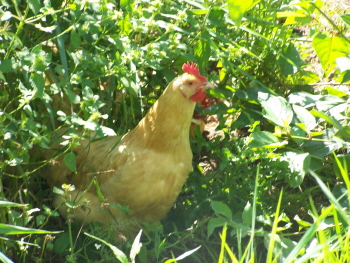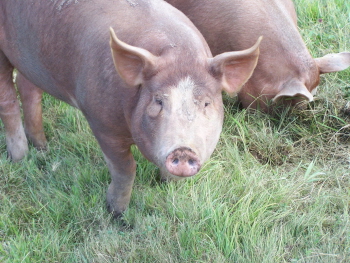Clover Valley Farms
Clover Valley Farms is a small-scale integrated farm near Duluth, Minnesota. Jeff Hall and Cindy Hale raise poultry, hogs, apples, and herbs. They started selling products in 2007 and have grown into a combination of direct sales and wholesale. This case study describes how Cindy and Jeff started working toward their farming dreams in 1999, how they have gradually added enterprises, and how they integrate farming with their off-farm jobs and their overall lifestyle. There are details on training and networking, business planning and goal setting, production methods, on-farm research, poultry processing, cider pressing, yields and profitability, marketing models, and business management. Jeff and Cindy’s emphasis on integration (such as the passive solar greenhouse that helps heat their home while giving life to their herbs) is highlighted throughout the case study. Interviews and photos for this case study were obtained primarily in 2010. Some follow-up notes from 2011 are included, but as with all case studies in the Profiles in Sustainable Agriculture project, this case study necessarily represents a snapshot in time. Like many farmers, Cindy and Jeff’s approach is continually evolving. |
   |
Farmer’s Perspective: Lessons Learned
|
 |
 |